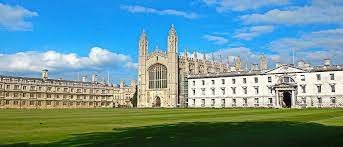In the quest for advanced education, individuals around the globe look towards Australia as a beacon of academic excellence. Its universities are renowned for their high-quality teaching, research, and employability. However, for many students holding a Higher National Diploma (HND) or undergraduate degrees with second or third-class honors, the journey towards pursuing a master’s degree in Australia may seem daunting.
The question that often arises is: Do schools and universities in Australia accept these qualifications for admission into their master’s programs? This blog post dives into the policies of Australian educational institutions regarding these qualifications and sheds light on how individuals with HND certificates, second class, and third class honors can advance their studies in Australia.
What Does Schools and Universities in Australia Require For Admission
While entry requirements can vary significantly across different institutions and programs, there are some general criteria and documentation that most schools and universities in Australia expect applicants to meet or provide:
- Bachelor’s Degree: A bachelor’s degree in a relevant field from an accredited institution is typically required. Some programs may accept degrees from non-accredited institutions under specific circumstances.
- GPA: While there’s no single minimum GPA across all institutions, most programs aim for applicants with a good academic record. This typically translates to a GPA equivalent to a UK 2:1 or higher, or a US 3.0 or higher.
- Transcripts: Submit official transcripts from all previous academic institutions.
- International students: If your native language isn’t English, you’ll need to demonstrate proficiency through recognized tests like IELTS or TOEFL. Minimum score requirements vary by program and university.
- Statement of Purpose: This essay allows you to showcase your academic background, research interests, career goals, and why you’re a good fit for the program.
- Letters of Recommendation: Strong letters of recommendation from academic or professional references can strengthen your application.
- Relevant Work Experience: While not always required, relevant work experience can be valuable, especially for professional Master’s programs.
It’s important for prospective students to thoroughly research the specific requirements of their chosen universities and programs. Direct communication with admissions offices can also provide valuable personalized guidance to navigate the application process successfully.
Schools in Australia that Accept HND Certificates, Second Class and 3rd Class for Masters Degree Programs
In Australia, there are a number of universities that may accept HND certificates, second class and third class qualifications for their master’s degree programs.
Charles Sturt University
Charles Sturt University (CSU) is an Australian public university that has campuses in New South Wales, Victoria, and the Australian Capital Territory. CSU is known for its flexible delivery options, including online learning and distance education, and offers a wide range of programs at the bachelor’s, master’s, and doctoral levels.
Southern Cross University
Southern Cross University (SCU) is an Australian public university with campuses in New South Wales and Queensland. SCU offers undergraduate and postgraduate programs in a variety of areas, including business, education, health, arts, and social sciences. For international students, SCU may accept Advanced Diplomas from TAFE institutions as equivalent to a year or more of study towards a bachelor’s degree, subject to the specific program and its requirements
University of Southern Queensland (USQ)
The University of Southern Queensland (USQ) is a public university in Queensland that offers undergraduate and postgraduate programs in areas such as business, science, technology, health, education, and the arts. For international students, USQ may accept Advanced Diplomas from TAFE institutions as an equivalent to a year or more of study towards a bachelor’s degree, depending on the specific program and its entry requirements. Additionally, USQ has a dedicated office that assists international students with their admission and visa processes.
Edith Cowan University (ECU)
Edith Cowan University (ECU) is a public university in Western Australia that offers undergraduate and postgraduate programs in a range of areas, including business, arts, education, health, engineering, and more. For international students, ECU may consider Advanced Diplomas from TAFE institutions as an equivalent to a year or more of study towards a bachelor’s degree, depending on the program and the student’s specific academic background. It’s also worth noting that ECU offers several pathway programs to assist international students in meeting the entry requirements for their desired program.
Curtin University
Curtin University offers a variety of master’s programs in fields such as business, engineering, and humanities. While they have specific admission requirements, they may consider applicants with non-traditional qualifications on a case-by-case basis.
It’s important for prospective students to thoroughly research the admission requirements and policies of each university and program they are interested in.
Universities in Australia that Accept HND Certificates, Second Class and 3rd Class for Masters Degree Programs
Charles Sturt University (CSU)
For international students, CSU may accept an Advanced Diploma as an equivalent to a year or more of study towards a bachelor’s degree, depending on the specific program and the student’s academic background. In addition to academic qualifications, CSU also considers factors such as English language proficiency, work experience, and other professional skills when assessing an applicant’s suitability for admission. It’s always best to check with the university directly to confirm the specific requirements for the program you’re interested in.
Southern Cross University (SCU)
SCU is recognized for its inclusive approach to admissions and offers a range of master’s programs in fields such as business, health sciences, and social sciences. They may consider applicants with HND certificates or lower class qualifications, particularly if they can demonstrate relevant work experience.
University of Southern Queensland (USQ):
USQ offers a diverse range of master’s programs and is committed to accessibility in higher education. They may consider applicants with HND certificates, second class, or third class qualifications, especially if they show potential for success in graduate studies.
Edith Cowan University (ECU)
ECU provides various master’s programs across different disciplines and is known for its supportive learning environment. While specific admission criteria vary, ECU may consider applicants with non-traditional qualifications on a case-by-case basis, including HND certificates and lower class classifications.
Curtin University
Curtin University offers a wide range of master’s programs and is recognized for its commitment to diversity and inclusion. While they have specific admission requirements, Curtin University may assess applicants with non-traditional qualifications, such as HND certificates and lower class classifications, based on individual merit and potential for success.
FAQS
Can I use my HND for a Master’s in Australia?
Some universities in Australia may accept Higher National Diploma (HND) qualifications for admission into master’s programs, depending on the institution and program requirements. However, it’s essential to check with individual universities for their specific policies.
What is the equivalent of HND in Australia for international students?
In Australia, the closest equivalent to a Higher National Diploma (HND) is the Advanced Diploma. Advanced Diplomas are offered at TAFE institutions (Technical and Further Education), which are vocational education and training providers in Australia. While Advanced Diplomas are not equivalent to a university degree, they are recognized as a level 6 qualification on the Australian Qualifications Framework, which is comparable to a bachelor’s degree.
Can I do a Master’s with a 2.2 in Australia?
While some universities might have alternative pathways or consider work experience alongside academic qualifications, directly entering a Master’s program with a 2.2 (UK system) or equivalent GPA is highly unlikely.
Who is eligible for a Master’s Degree in Australia?
Generally, eligibility for a Master’s degree in Australia requires:
- A Bachelor’s degree from an accredited institution
- Good academic standing, typically equivalent to a UK 2:1 or higher, or a US 3.0 or higher GPA
- Meeting English language proficiency requirements (for international students)
What is the minimum requirement for a Master’s in Australia?
There’s no single “minimum requirement” across all universities and programs. However, the typical minimum is a Bachelor’s degree with good academic standing. Each program has its specific requirements, so always check directly with the program you’re interested in.
Conclusion
For students holding these qualifications, it’s crucial to remember that your academic journey doesn’t end with the grades on your certificate. Australian universities appreciate the diversity of experiences and perspectives that international students bring to their campuses. By presenting a strong Statement of Purpose, securing impactful Letters of Recommendation, demonstrating language proficiency, and possibly gaining relevant work experience or completing a conversion course, you can significantly enhance your application.
Moreover, engaging directly with admissions offices can provide personalized advice and clarify any doubts, ensuring that you present the strongest application possible. Universities often have dedicated support services for international students, understanding the unique challenges they may face during the application process.






